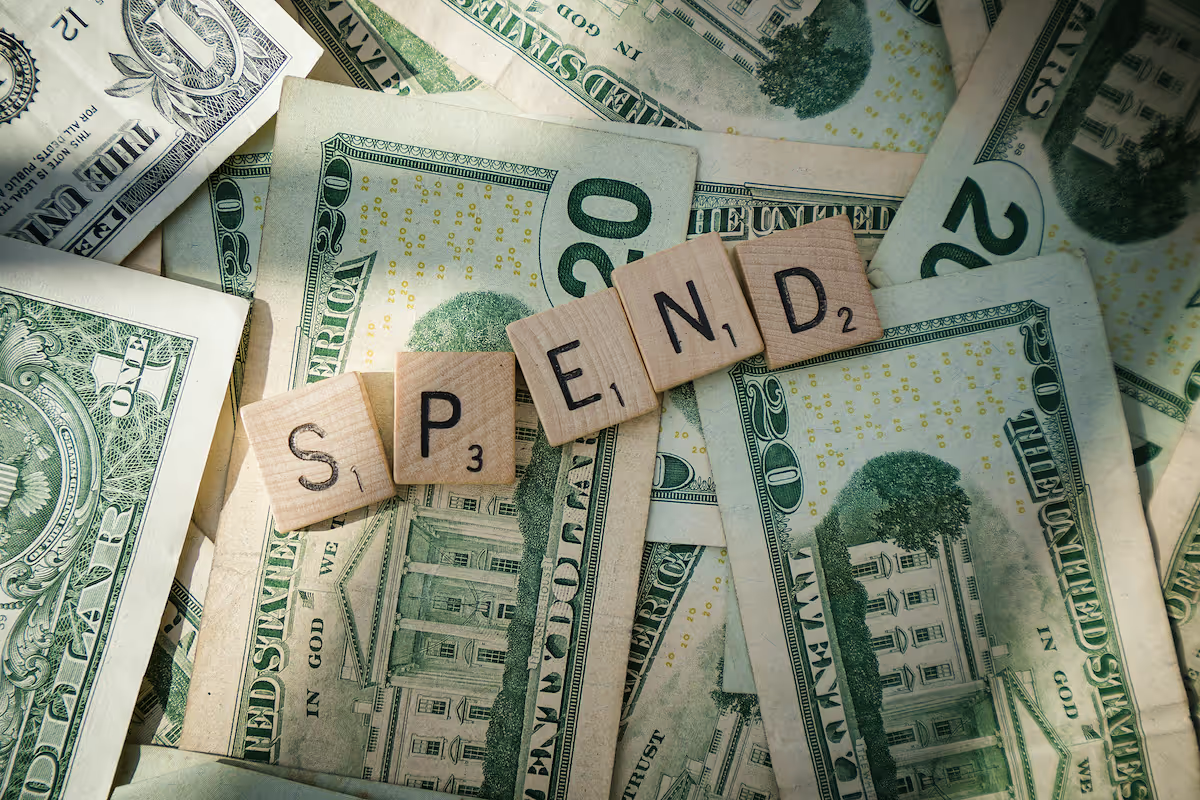
Kudos has partnered with CardRatings and Red Ventures for our coverage of credit card products. Kudos, CardRatings, and Red Ventures may receive a commission from card issuers. Kudos may receive commission from card issuers. Some of the card offers that appear on Kudos are from advertisers and may impact how and where card products appear on the site. Kudos tries to include as many card companies and offers as we are aware of, including offers from issuers that don't pay us, but we may not cover all card companies or all available card offers. You don't have to use our links, but we're grateful when you do!
Can Taking Money Out of a Savings Account Affect Your Credit Score?
July 1, 2025


Quick Answers
Withdrawing funds from your savings account has no direct impact on your credit score.
Credit bureaus do not track the balances or transaction activities of deposit accounts like savings or checking.
Your credit score is determined by your borrowing and repayment history, such as credit card usage and loan payments, not by the amount of cash you have on hand.
Withdrawing Money from a Savings Account
Taking money out of your savings account, an action known as a withdrawal, is the process of accessing the funds you have previously set aside. This can be accomplished through several methods, including electronic transfers to a checking account, using an ATM, or visiting a bank teller. It is a routine banking transaction that gives you liquidity and control over your own money.
A common question is how this activity affects your financial standing, specifically your credit score. Withdrawing money from a savings account does not directly impact your credit score, as this figure is based on your borrowing and repayment history. Since savings account activity is not reported to credit bureaus, moving your own funds does not influence your creditworthiness.
How Withdrawing Money from Your Savings Account Can Impact Your Credit Score
While withdrawing from your savings doesn't directly ding your credit score, it can trigger a domino effect. This chain of events could indirectly lead to a lower score if not managed carefully.
- Depleting Your Financial Cushion: The process begins when you withdraw a substantial sum from your savings, reducing or eliminating the funds you've set aside for emergencies or unexpected costs.
- Encountering Financial Shortfall: Later, you face an expense you can't cover with your regular cash flow—a car repair, a medical bill, or even just a tight month. Without your savings buffer, you lack the funds to pay.
- Missing a Credit Payment: This shortfall leads to a missed or late payment on a credit obligation, such as a credit card, auto loan, or mortgage. You simply don't have the cash on hand to meet the due date.
- Negative Reporting to Bureaus: Your creditor reports the delinquency to the major credit bureaus. Since payment history is the most significant factor in your credit score, this negative mark is officially recorded.
- Your Credit Score Drops: The reported late payment directly lowers your credit score. The impact can be substantial and remain on your credit report for years, making future borrowing more difficult and expensive.
How Much Will Taking Money Out of Your Savings Account Affect Your Credit Score?
Withdrawing money from your savings account doesn't directly harm your credit score, as your savings activity isn't reported to credit bureaus. However, certain related actions can indirectly cause your score to drop.
- Missed Loan Payments. If you can't cover a bill after a withdrawal, you might miss a payment. Lenders report late payments to credit bureaus, which will negatively affect your credit score.
- Secured Credit Cards. If your savings account secures a credit card, withdrawing the funds can cause the issuer to close it. This closure can increase your credit utilization ratio and lower your credit score.
- Overdraft Protection. Many link savings to checking for overdraft protection. Emptying your savings could lead to an uncovered overdraft, which might result in fees or a returned payment.
How You Can Avoid Taking Money Out of Your Savings Account Affecting Your Credit Score
Maintain Timely Bill Payments
Withdrawing from a standard savings account won't directly harm your credit. The real risk comes from what happens next. Ensure you continue to pay all your bills and loan installments on time, as this payment history is a primary factor in your credit score.
Review Savings-Secured Loans
If your savings account acts as collateral for a loan, be cautious. Withdrawing below a required balance could trigger a loan default or closure. This event would be reported to credit bureaus, potentially lowering your score by affecting your credit history and mix.
Ways to Improve Your Credit Score
Your credit score is not set in stone; it's a dynamic number that can always be improved with time and consistent positive behavior. There are several actionable strategies to boost your score, with many people seeing meaningful changes within a few months of adopting better financial habits.
- Monitor your credit reports regularly. Obtain your free reports from the three major bureaus and dispute any inaccuracies you find to ensure your file is correct.
- Establish automatic bill payments. Setting up auto-pay for all your credit accounts helps guarantee on-time payments, which is the most significant factor in your credit score.
- Reduce your credit utilization ratio. Aim to keep your credit usage below 30% of your available limit by paying down balances or requesting a credit limit increase.
- Become an authorized user. Being added to a credit card account belonging to someone with a strong payment history can help build your own credit profile.
- Diversify your credit mix. Lenders like to see that you can responsibly manage different types of credit, such as installment loans and revolving credit cards.
- Limit hard inquiries. Space out your credit applications and use prequalification tools when possible to avoid numerous hard inquiries in a short period.
The Bottom Line
Taking money from your savings account does not directly impact your credit score. Credit scores are based on your borrowing and repayment history, not your savings account balance or activity.
Frequently Asked Questions
Does withdrawing money from my savings account lower my credit score?
No, withdrawing money from your savings account does not directly impact your credit score. Credit scores are based on your borrowing and repayment history, not your deposits.
Can frequent large withdrawals from savings indirectly affect my credit?
Indirectly, yes. If large withdrawals lead you to miss loan payments or increase credit card balances, your credit score could be negatively affected by those actions.
Do lenders look at my savings account balance when I apply for a loan?
Yes, lenders often review your savings to assess your financial stability and ability to make a down payment, but this review doesn't directly change your credit score.

Supercharge Your Credit Cards
Experience smarter spending with Kudos and unlock more from your credit cards. Earn $20.00 when you sign up for Kudos with "GET20" and make an eligible Kudos Boost purchase.
Editorial Disclosure: Opinions expressed here are those of Kudos alone, not those of any bank, credit card issuer, hotel, airline, or other entity. This content has not been reviewed, approved or otherwise endorsed by any of the entities included within the post.





















.webp)
.webp)
.webp)
.webp)















